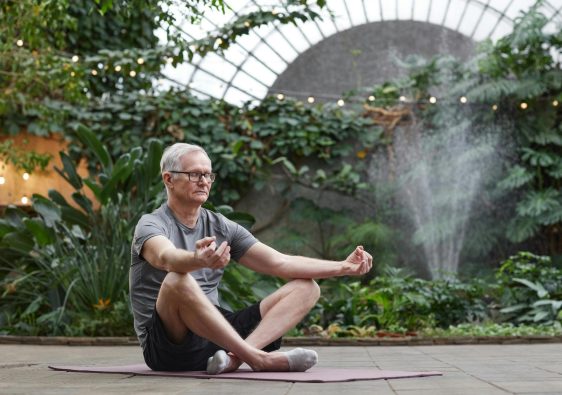The best exercise to release stress? I have found that exercise is one of the best ways to alleviate stress, but some may be better than others. He we explore the types of exercise best for releasing stress, backed by scientific evidence and practical insights.
The Science of Exercise and Stress Relief
Exercise is a powerful tool for managing stress, thanks to its profound effects on both the body and mind. Engaging in physical activity triggers the release of endorphins, the body’s natural mood elevators, and helps regulate cortisol, the primary stress hormone. According to a study published in the Journal of Health Psychology, regular exercise can reduce stress levels and improve mood significantly.
For more on the science behind this, visit Exercise for Stress Relief: The Scientific Connection.
Best Exercises to Release Stress
- Aerobic Exercise
- Running: Running is a highly effective way to boost endorphin levels and reduce stress. It also improves cardiovascular health, which is linked to better mental health.
- Cycling: Cycling, whether outdoors or on a stationary bike, combines the benefits of aerobic exercise with the joy of exploring new surroundings or a focused workout routine.
- Swimming: Swimming provides a full-body workout that is gentle on the joints, making it an excellent option for stress relief.
- Strength Training
- Weight Lifting: Lifting weights not only builds physical strength but also enhances mental resilience. It can help reduce anxiety by improving focus and self-confidence.
- Resistance Bands: Using resistance bands is a low-impact way to strengthen muscles and reduce stress, suitable for all fitness levels.
- Mind-Body Practices
- Yoga: Yoga combines physical movement with mindfulness, making it highly effective for reducing stress. It promotes relaxation and enhances flexibility and strength.
- Tai Chi: Tai Chi involves slow, deliberate movements and deep breathing, helping to reduce stress and improve mental clarity.
Explore more about the benefits of these exercises in Types of Exercise Best for Releasing Stress.
Practical Tips for Incorporating Exercise into Your Routine
Starting an exercise routine can seem daunting, but here are some practical tips to help you get started:
- Start Small: Begin with short, manageable sessions and gradually increase the duration and intensity.
- Set Realistic Goals: Establish achievable goals to maintain motivation and track your progress.
- Find Enjoyable Activities: Choose exercises you enjoy to make it easier to stick with your routine.
- Consistency is Key: Aim to exercise regularly, even if it’s just a few minutes each day.
For more guidance on creating a sustainable exercise routine, check out Creating an Effective Exercise Routine for Stress Management.
The Role of Emotional Support Supplements
In addition to regular exercise, incorporating Emotional Support Supplements into your routine can further enhance stress relief. Supplements like adaptogens, amino acids, and vitamins help balance stress hormones and support overall mental health. Adaptogens such as ashwagandha and rhodiola rosea are particularly effective in reducing cortisol levels and enhancing resilience to stress.
Managing the Long-Term Effects of Stress
Addressing the long-term effects of stress requires a comprehensive approach. Here’s a three-step strategy to consider:
- Learn the Science of Stress: Understanding how stress affects the body and mind can empower you to take proactive steps. For a comprehensive guide, visit Understanding the Science of Stress: A Comprehensive Guide.
- Emotional Support Supplements: Incorporate supplements to balance stress hormones and support mental health. Explore Emotional Support Supplements for more information.
- Holistic Wellness Tools: Implement practices such as mindfulness, regular exercise, and a healthy diet to maintain overall well-being.
By integrating these practices into your daily routine, you can effectively manage stress and improve your quality of life.
Taking Action
By understanding the types of exercise best for releasing stress and incorporating these activities into your daily life, you can effectively manage stress and improve your overall well-being. For further insights, explore these related articles:
- Here’s Why I Exercise to Reduce Stress
- Mindfulness and Meditation: Proven Benefits
- Cognitive Behavioral Strategies for Stress Reduction
Scientific References:



